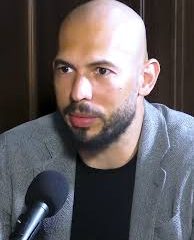The Latest on Andrew Tate: Controversies and Legal Challenges
Introduction
Andrew Tate, a British-American internet personality, businessman, and former professional kickboxer, has gained notoriety for his polarising views and controversial statements across various social media platforms. His relevance in today’s discourse stems not only from his large following but also from ongoing legal troubles that have captured global attention. Recent developments have sparked renewed interest in his activities and messages.
Background on Andrew Tate
Born in Washington, D.C., in 1987, Andrew Tate rose to fame as a four-time world champion kickboxer. He later turned towards entrepreneurship and social media, where his provocative opinions on masculinity, success, and relationships gained him a significant following. However, his views have also led to substantial backlash and accusations of promoting misogyny and harmful ideologies.
Legal Troubles
In late 2022, Andrew Tate was arrested in Romania alongside his brother Tristan, facing charges related to human trafficking and forming an organised crime group aimed at exploiting women. This arrest highlighted the controversial nature of his online persona and raised critical discussions about the responsibilities of social media influencers. As of 2023, Tate remains embroiled in legal battles that have continued to dominate headlines and social media platforms.
Recent Developments
In September 2023, updates on Tate’s legal situation revealed ongoing investigations and potential upcoming court dates. His supporters argue for his innocence, claiming that he is being targeted due to his outspoken views. Meanwhile, critics and activists point to the serious accusations against him as a validation of their concerns about his influence on society. The discussions surrounding Tate have also led to broader debates about gender dynamics, online content regulation, and the effects of prominent personalities on young audiences.
Conclusion
The unfolding story of Andrew Tate continues to attract significant media focus and public scrutiny. As his legal challenges progress, they pose essential questions regarding accountability for public figures in the digital age. This situation serves as a reminder of the impact social media can have on public perceptions and the fine line between free speech and harmful rhetoric. Looking ahead, the outcomes of Tate’s legal issues may set precedents in how similar cases are handled in the future, influencing not just Tate’s life, but also the larger sphere of online discourse.









